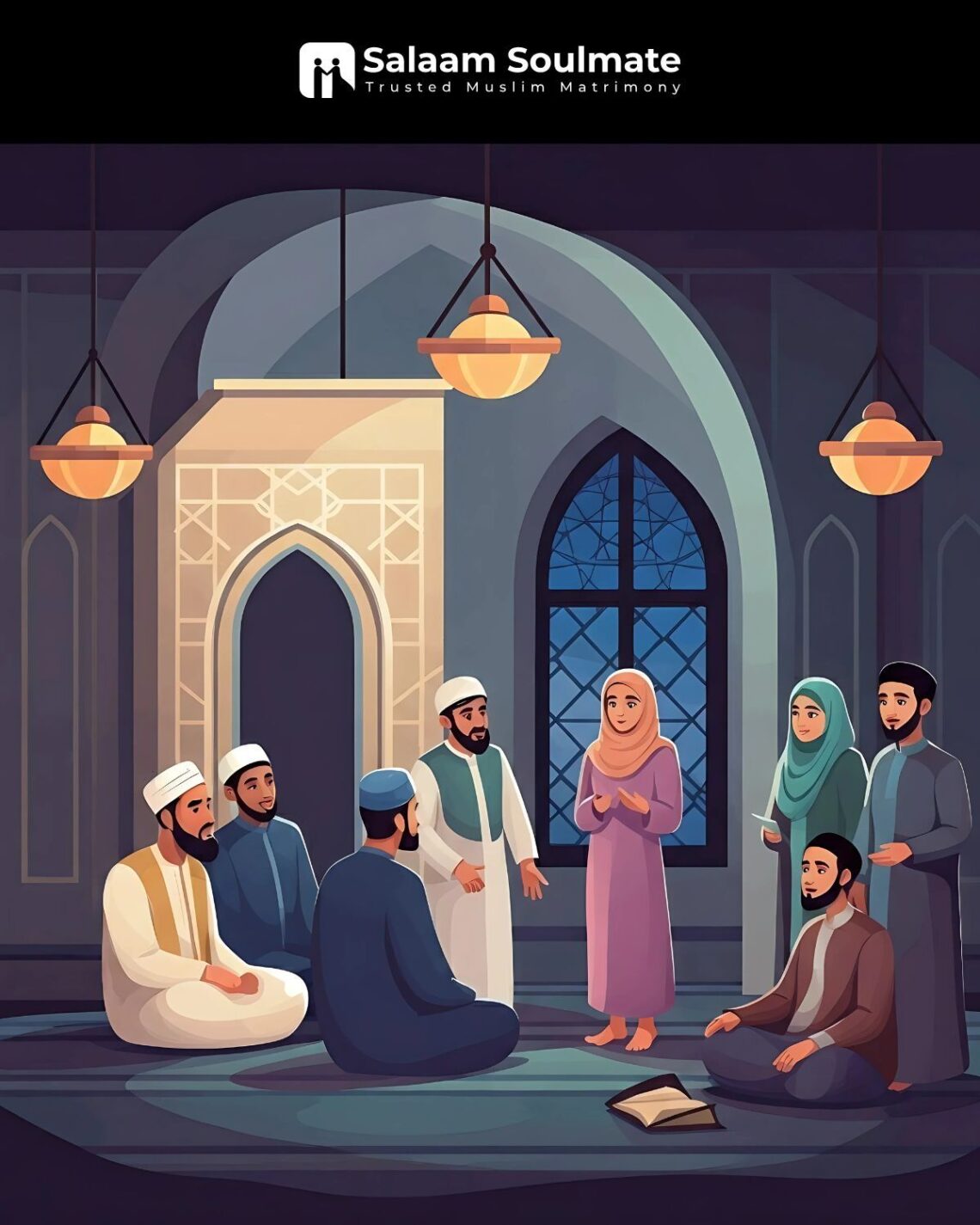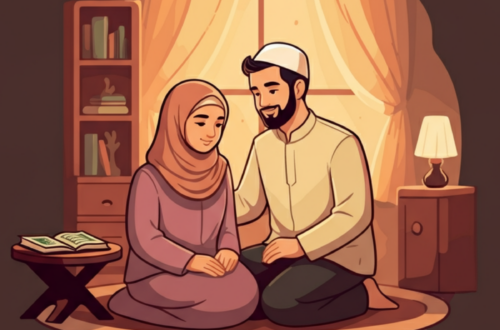Finding a life partner is an important milestone in a Muslim’s life. Marriage holds immense spiritual significance in Islam, symbolizing a partnership based on faith, mutual respect, and harmony. A key element of a successful Islamic marriage is the concept of Kafa’ah, or compatibility. This Islamic guide will explore what Kafa’ah entails and why it is crucial in fostering marital harmony. By understanding these principles, you can take meaningful steps toward a fulfilling and tranquil marriage.
The Importance of Compatibility (Kafa’ah) in Marriage
Kafa’ah, often translated as compatibility or equivalence, refers to the alignment between potential spouses in various aspects of life. This alignment aims to ensure a harmonious partnership. Islamic teachings emphasize that compatibility protects the institution of marriage, helping to minimize potential conflicts that may arise from significant differences.
Prophet Muhammad (peace be upon him) underscored the value of compatibility when choosing a life partner. The goal isn’t to find perfection but to build a marital relationship rooted in shared values, mutual growth, and enduring love. This Islamic guide to compatibility highlights how aligning key aspects of a couple’s character and beliefs can create a strong foundation for marital success.
A Divine Perspective on Harmony by Islamic Guide
Compatibility is deeply rooted in the Quran and the teachings of the Prophet (peace be upon him). Allah says in the Quran:
“Marry those among you who are single and the virtuous ones among your male slaves and female slaves. If they are poor, Allah will enrich them out of His bounty.”
(Surah An-Nur 24:32)
Join India’s leading Muslim Matrimonial platform, salaamsoulmate.com, and connect with your perfect match today!
This verse points to the fact that material possessions shouldn’t be the sole criteria for marriage. Instead, shared virtues and a strong faith form the essence of compatibility and the Prophet Muhammad (peace be upon him) further emphasized this in a well-known Hadith:
“If a person comes to you whose religion and character please you, then marry him.”
(Sunan At-Tirmidhi, 1084)
These teachings highlight that moral and religious compatibility are central to creating peace within the household and a foundation for a strong Muslim community.
Dimensions of Compatibility in Islam
This Islamic guide to Kafa’ah reveals that compatibility isn’t limited to one aspect. It spans multiple dimensions, both tangible and intangible, that contribute to a thriving, balanced marriage. Here are the key dimensions:
1. Religious Commitment
A shared commitment to Islam forms the basis of any successful Islamic marriage. When spouses align in their devotion to the faith, it becomes easier to build a life based on Islamic principles.
Why it Matters: A mutual dedication to faith encourages harmony, especially in daily practices such as Salah, Zakat, and raising children with strong Islamic values.
Example: Before marriage, partners can discuss their approach to obligatory acts of worship, such as how they prioritize prayer and fasting.
2. Socio-Economic Status
While Islam prioritizes piety over wealth, socio-economic compatibility can help avoid misunderstandings or difficulties later in marriage. Factors like financial stability, education, and lifestyle expectations are worth considering.
Why it Matters: Significant differences in financial habits or goals can lead to unnecessary strain. Aligning on these aspects prevents tensions and enhances mutual trust.
Example: Discuss financial decisions, such as how expenses will be divided or long-term savings goals, before committing to marriage.
3. Cultural Background
Culture shapes a person’s identity and values. While Islam allows for diversity in marriages, a degree of cultural alignment provides ease in blending lifestyles and meeting family expectations.
Why it Matters: When couples have a basic understanding of each other’s cultural differences, it fosters respect and cooperation.
Example: Couples from different cultural backgrounds can work on building compatibility by learning and appreciating each other’s traditions.
Contemporary Insights on Kafa’ah
This Islamic guide also sheds light on how interpretations of Kafa’ah have evolved to meet the realities of today’s world. Muslim communities have grown more diverse, and as such, flexibility is vital in defining compatibility.
- Focus on Spiritual Growth: Scholars encourage couples to prioritize faith, mutual respect, and shared values over superficial factors. Dr. Yasir Qadhi points out that spiritual growth together leads to greater marital satisfaction.
- Breaking Stereotypes: While differences in culture or socio-economic status might seem challenging, counselors emphasize that such marriages can succeed when partners genuinely communicate and compromise.
- Practical Considerations: Modern couples are advised to focus on practical aspects like shared responsibilities, parenting styles, and long-term goals rather than rigidly sticking to superficial compatibility.
Practical Steps for Assessing Compatibility
Understanding Kafa’ah is simpler with proper guidance. Use these tips from this Islamic guide to evaluate compatibility effectively:
1. Open and Honest Communication
Have discussions early about expectations, values, and marriage goals. Open communication allows you to assess alignment and identify areas for compromise.
2. Consult Trusted Individuals
Reach out to Islamic scholars, family members, or counselors for advice. Trusted sources often bring valuable insights rooted in Islamic teachings.
3. Engage in Premarital Counseling
Participating in premarital counseling gives couples tools to address potential areas of conflict and prepares them for a strong union.
4. Prioritize Core Values
Focus on shared principles such as honesty, piety, and mutual support rather than superficial characteristics like wealth or appearances.
5. Respect Individual Differences
No two individuals are the same. Growth in marriage often stems from appreciating and navigating differences together.
6. Make Istikhara
Perform the Istikhara prayer to seek Allah’s guidance on major life decisions, including the choice of a spouse.
Building Marital Bliss Through Compatibility
The Quran describes marriage as a union of harmony, stating in Surah Al-Baqarah (2:187): “They are clothing for you, and you are clothing for them.” Compatibility, or Kafa’ah, acts as the thread weaving this clothing together, ensuring a marriage that thrives on understanding and balance.
This Islamic guide to compatibility encourages singles and married couples alike to prioritize Kafa’ah in key areas such as faith, character, and values. By doing so, they can create marital bonds that are peaceful and enduring. For scholars and counselors, raising awareness about Kafa’ah remains a vital step in guiding Muslim communities toward informed and harmonious marriages.
If you’re on the path to finding a compatible spouse, consider consulting trusted Islamic scholars, joining support networks, and making reliance on Allah through prayer. These steps will lead you toward a marriage built on faith and mutual respect, ensuring lasting companionship and spiritual growth.






